Monica Wilson Prize for Best Student Paper
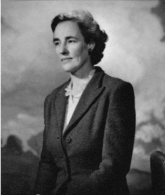
The Monica Wilson Prize was introduced in 2009 to commemorate the contribution of Monica Wilson to Anthropology. The prize is awarded to the best student essay submitted by a postgraduate student as a paper at the annual Anthropology Southern Africa conference. The prize-winning essay is selected based on the work that best addresses the theme of the annual conference or excellently exemplifies the spirit of discovery in ethnographic work. The winner is announced at the annual ASnA conference dinner, and receives a monetary prize and publication in the ASnA Journal.
Congratulations to our 2021 winner Tian Chen (University of Cape Town) and our 2022 winner Karabo-Maya Rodwell (University of the Witwatersrand)
Previous Winners
2022: Karabo-Maya Rodwell (University of the Witwatersrand)
2021: Tian Chen (University of Cape Town)
2018: Shanee Giani (University of Johannesburg)
2017: Saibu Mutaru (Stellenbosch University)
2015: Christie Kruger (University of Witwatersrand)
2014: Adriaan Steyn (Stellenbosch University)
2013: Ms Kate Abney (University of Cape Town) and Mr Ala Alhourani (University of the Western Cape)
2012: Adam Perry (Univesity of Fort Hare)
2011: Kenneth Tafira (University of Witwatersrand)
2010: Phefumula Nyoni (University of Witwatersrand)
2009: Nina Botha (University of Pretoria)
Steve Ouma Akoth (University of the Western Cape)
2022 Karabo-Maya Rodwell
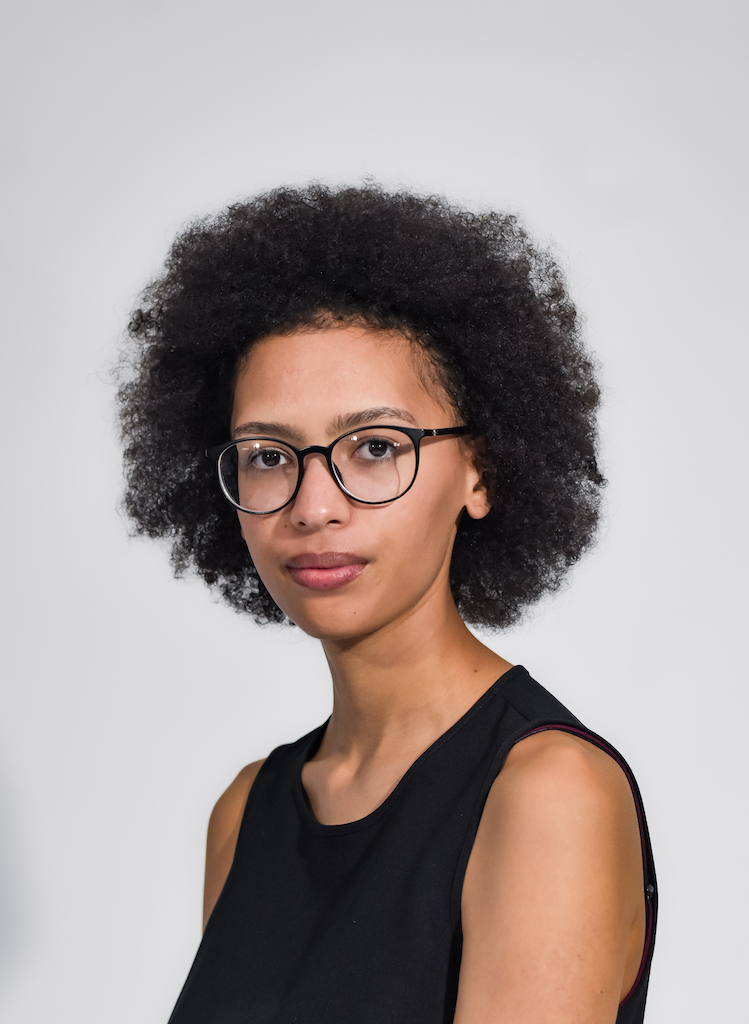
Biography
Karabo-Maya Sankara Rodwell is an MA candidate in anthropology at the University of the Witwatersrand. One of her main areas of interest is Pan Africanism, having completed her Honours research on Robert Mangaliso Sobukwe and his impact on youth before and after 1994. Her master’s research focuses on the experiences of Black women in South Africa’s Black Consciousness Movement. As a Mellon Mays alumni and a Canon Collins Scholar, she intends to stay in the academic space and make the world of academia more accessible and more reflective of the society in which we live.
Monica Wilson Essay
Dear Mr Sobukwe: Examining Robert Mangaliso Sobukwe’s Pan African vision and how it has influenced youth movements in South Africa today
Pan Africanism is experiencing a resurgence amongst young people in post 1994 South Africa. I am interested in contemporary engagements with this philosophy, especially how the history of Pan Africanism has shaped my generation’s approach to justice. In this research essay I highlight a figure in South African history, Robert Mangaliso Sobukwe so as to explore how people interpret Sobukwe’s legacy across generations. The participants in this research and I represent a small glimpse into the changing interpretations of Sobukwe’s legacy post 1994 in South Africa.
I have chosen an epistolary form as my key organising framework to share my ethnographic research, mirroring Sobukwe’s own prolific letter writing practice throughout his life. This piece begins with a letter written by a participant in my research to Sobukwe, followed by a response letter from me. This dialogical process of call and response letters crafts a conversation between me, the researcher, the participants in my research and Robert Sobukwe. The research essay contains elements of auto-ethnography, allowing me to engage closely with how Sobukwe has impacted my own thinking about justice in South Africa. This research essay is significant in that it demonstrates how an ideal, Pan Africanism, travels between two generations.
2019 Tian Chen
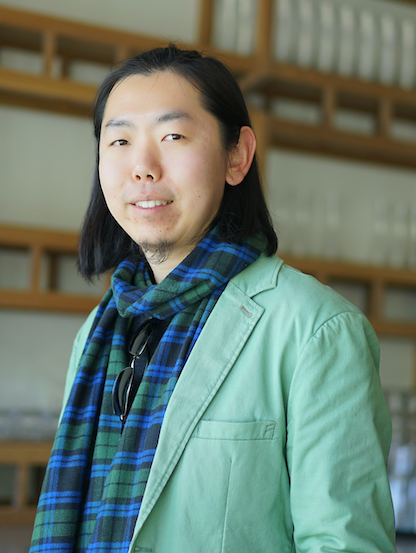
Biography
TIAN Chen is simultaneously a Beijinger, Hong Konger and Capetonian, as well as an educator, writer and entrepreneur who engages in intercultural exchanges between Africa and Asia. He recently completed his PhD in anthropology at the University of Cape Town with a thesis titled ‘The Middle Stage: State-Sponsored Overseas Chinese Academics and China’s Managed Cultural Globalisation’. He is a co-founder of Wubuntu, a startup driving intercultural empowerment between Africa and Asian youth. He is a curious and creative individual and commits to narrating his intercultural explorations and reflections with a global audience both within and outside academia to bring the world closer.
Monica Wilson Essay
Re-imaging a Cosmopolitan Reality: Overseas Chinese Academics in South Africa
Imagination is defined by sociologist Charles Wright Mills (2000:7) as ‘the capacity to shift from one perspective to another’ and ‘the capacity to range from the most impersonal and remote transformations to the most intimate features of the human self’. As the world becomes increasingly globalised and interconnected, people’s imaginations of the world and themselves constantly transform, and these re-imaginations reshape their perceptions of realities and identities in return.
Imaginations are effectively used by nation-states to create global impacts beyond their physical national borders. China understands the power of global imaginations and carries out various initiatives of managed cultural globalisation to dismiss prejudices about China, and create a positive image of the party-state. It is estimated that China sets aside an annual budget of $10 billion to implement its managed cultural globalisation programmes by sending state-sponsored Overseas Chinese Academics (OCAs) to work at collaborating institutions such as the Confucius Institutes (Shambaugh 2015:100). This is a diverse group of academics who undertake China’s state-sponsored programmes to conduct teaching, research, study, or academic exchange activities overseas.
Tian’s paper explores the re-imaginations of the state-sponsored OCAs and draws on ethnographic data collected at various South African educational institutions. Tian argues that state-sponsored OCAs are producers as well as receivers of global imaginations, and explore their shallow, middle and deep levels of cultural shaping in South Africa.
2018 Shanee Giani
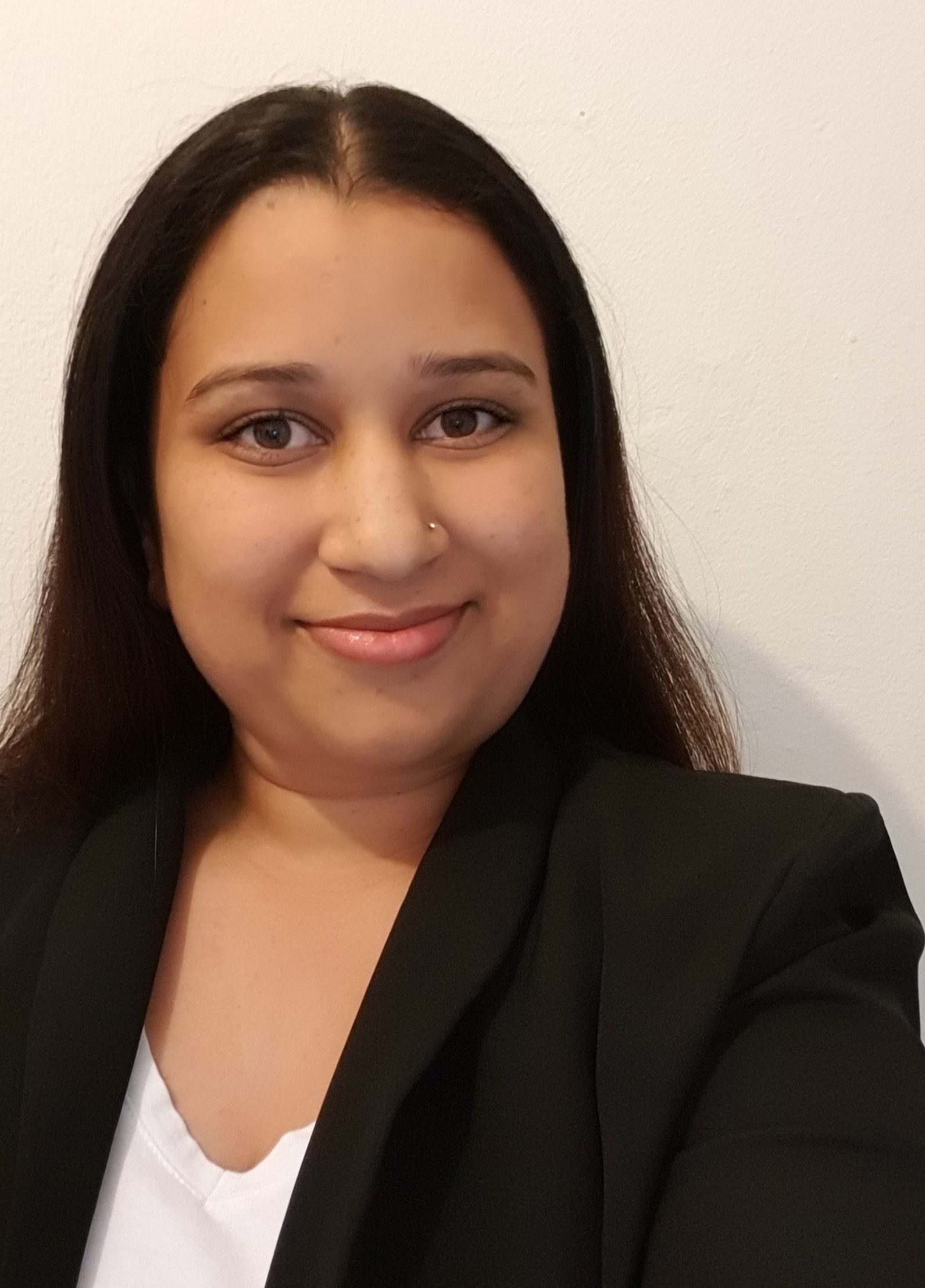 Biography
Biography
Shanee Giani completed her Master’s in Anthropology at the University of Johannesburg (South Africa), under the supervision of Ms Hemali Joshi. Her MA research focused on understanding sleep narratives at a department at the University of Johannesburg, Auckland Park campus. This study explored the anthropological meaning of sleep through understanding sleep narratives. Her research interests focus on ethnography, social issues, and making meaning of social and cultural phenomena. In addition, she is also interested in the importance of sleep in our everyday life. Shanee is currently a PhD candidate in Anthropology enrolled at the University of Johannesburg.
Monica Wilson Essay
The Trade-off of sleep: A Negotiation with the self
Sleep is an essential part of our everyday lives. However, living in a fast-paced world, where much of our time is focused on the everydayness of life, we often make little time for sleep. This paper stems from a major finding during my master’s research study which focused on understanding the sleep narratives of participants at a department at the University of Johannesburg, Auckland Park campus. In this study, the diverse community differed in terms of age, gender, class, ethnicity and socio-economic status. This paper describes the narratives of participants sleeping in secret spaces, as well as the agency with which people negotiate sleep and work within a typical 24/7 lifestyle. This trade-off between work and sleep shows that participants are exhausted and find parts of their working day to sleep, whether it is under a desk or in the office. In this paper, phenomenology was used as a conceptual framework to understand the lived experience of sleep. In addition, qualitative methods such as interviews, observations and sleep diaries where used to understand the sleep narratives. Overall, this paper contributes to a broader meaning of sleep from a cross-cultural perspective and further illustrates that sleep is not a privilege for all.
2017 Saibu Mutaru
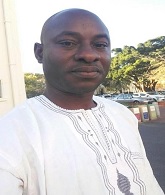 Biography
Biography
Originally from Tamale, Ghana, Saibu Mutaru is currently a Lisa Maskell Doctoral Fellow at the Graduate School of Arts and Social Sciences, Stellenbosch University (South Africa) where he pursues a PhD programme in Social Anthropology. His research, which focuses on the anthropological investigation of the economy of ‘witch camps’ in the Northern region of Ghana, is being supervised by Dr. Thomas Cousins. Saibu’s research interests include economic anthropology, anthropology of development and witchcraft.
Monica Wilson Essay
Conducting Anthropological Fieldwork: Ethical dilemmas of ‘data larceny’ and ‘multiple respondent’
Abstract: This paper seeks to discuss two ethical dilemmas that I encountered during the time of my fieldwork in Northern Ghana. These two ethical dilemmas could be presented hypothetically and metaphorically in the form of questions as follows: How legitimate and ethical is it for a researcher to gain access to data provided by a child with the consent of only the mother and not the father in a patriarchal society? Secondly, how must we surmount the ethical problem involving a case where a ‘consecrated informant’ speaks not by himself but through multiple voices all claiming to represent the opinion of the informant? In one way or the other, every research project is confronted with some kind of ethical conundrum. Many research textbooks pre-empt the occurrence of some of these ethical dilemmas during fieldwork and thus provide guidance on how to prevent them from occurring, or even surmount them when the occur. However, during fieldwork the researcher could get overwhelmed by the availability of several alternative approaches to dealing with a situation. Moreover, researchers could get confused when they are confronted with certain ethical dilemmas which have never been seen or read in research textbooks. For a young and inexperienced anthropologist conducting fieldwork, such situations could be very daunting and disorienting. In this paper, I discuss my fieldwork experiences in relation to these two ethical dilemmas. The first dilemma, which I shall call ‘data larceny’, involves a situation where data is obtained from a ‘protected interviewee’ without the consent of a principal stakeholder. The second ethical dilemma involves conducting interview with a ‘consecrated informant’ who, for cultural reasons, decides to respond through multiple voices of his confidants. The multifarious nature of the consecrated informant’s response qualifies him to be labelled as a ‘multiple respondent’.
2015 Christi Kruger
 Biography
Biography
Christi Kruger is a doctoral fellow at the Wits Institute for Social and Economic Research, completing a PhD in anthropology under the supervision of Pamila Gupta and Nicky Falkof. Her research interests are in the areas of critical whiteness studies, post-apartheid political economies, and systems of state assistance. Christi’s current project explores the renewed prominence of poor whitism after 1994, and seeks to understand the implications of the poorer white experience in contemporary South Africa.
Monica Wilson Essay
"(Dis)empowered Whiteness: Un-whitely Spaces and the Production of the Good White Home"
Abstract: The paper draws on ethnographic fieldwork in a white informal settlement in South Africa, to explore the ways in which poorer whites negotiate living in informal settlements with perceived notions of whiteness and blackness. In doing this, I argue, they deliberately identity as informal settlers, or squatters, while still consciously displaying normative forms of whiteness. It is specifically through the organisation of informal houses and homes that white informal settlers have sought to construct a normative whiteness which mimic that subscribed to poorer Afrikaners in the 1930s. In this way they differentiate their living space from other - black African - informal settlements in South Africa while not completely abandoning the idea that they, too, are informal settlers. I argue that white informal settlers negotiate these different social identities by constructing the concept of a whitely squatter camp and are thus able to negotiate perceived contradictory identities.
2014 Adriaan Steyn

Biography
Adriaan Steyn is a MA candidate in Social Anthropology at Stellenbosch University, supervised by Dr Bernard Dubbeld. His current study focuses on the production, content and reception of Afrikaans film since 2007. He is specifically interested in how farms and the countryside are depicted in these films.
Monica Wilson Essay
"The truck driver's watch – Time and the working lives of long haul truck drivers"
Abstract: The optimal use of time has shaped the organization of productive activity in mature capitalist societies. This objective has similarly shaped labour in the truck transport industry. Based on fieldwork conducted amongst long haul truck drivers, I explore the unique ways in which time is folded into and dictates the greatest part of their lives on the road. I travelled nearly 10 000km with cross-border and local truck drivers operating in South Africa, Botswana, Zimbabwe, Zambia, Mozambique and Malawi. While these drivers face a myriad of time-consuming contingencies specific to southern Africa, they are constantly trying to move between different spaces in the quickest possible time. In the absence of well-enforced regulations restricting their daily time on the road, they are willing to stretch the limits of their bodies in order to turn every available minute into distance and therefore into profit for their employers. This time-discipline is not only externally imposed upon them, but also assumed and internalized to such an extent that they come to take pride in their own time-thrift. Challenging Burawoy's notion of work as a game, I attempt to provide an answer to the question: who controls the truck driver's watch?
2013 Ala Alhourani
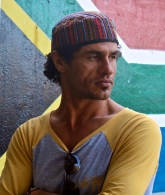 Biography
Biography
Ala Alhourani is a Palestinian Anthropologist and is a PhD candidate at the University of Western Cape, Cape Town, South Africa. His research focused on the aesthetic and performances of Muslim-ness in Cape Town. Ala's master's degree looked at the various ways in which students at UWC make different meanings of two locally produced soap opera (Isidingo and Generation), and the way the South African National Broadcaster (SABC) contributed to nation-building projects. He is an activist, he teaches drumming and drama at various townships in and around Cape Town.
Monica Wilson Essay
"Aesthetic and Performance of Unity and Diversity of Muslims in Cape Town"
Abstract: The paper explores "aesthetic formations" (Meyer, 2009) of Muslim-ness in Cape Town; the related politics and processes of authenticity and materialization of Muslim communitarian cultural style. The paper discusses the making and remaking of Muslims "imagined community" (Anderson, 1991) in Cape Town that is marked with great diversity and complexity (Tayob, 2002). The ethnography focuses on the aesthetic sound of Arabic language that seems to bears 'aesthetic commonality' that brings about a sense of belonging among Muslims and evoke their attachment to a shared "sacred" (Durkheim, 1995) of transnational Muslim Ummah. Here, the sound of Arabic language provides a powerful mean of symbolic enactment that authorizes authenticity (Becker, 2012) of Muslim-ness. The ethnography suggests that the rhythmic sound of Arabic language, rather than the meanings of it, is what provides a "aesthetically coded sentiment" (Feld, 1982:217) that informed by and constitutes an 'aesthetic communality'.
2013 Kate Abney
 Biography
Biography
PhD Candidate in Social Anthropology, University of Cape Town, supervised by Dr. Susan Levine
Kate is originally from Denver, Colorado but has been residing in South Africa for almost a decade. Her PhD work focused on the experiences of paediatric Tuberculosis patients living in an inpatient facility in Cape Town for extended stay treatment.
Winning the Monica Wilson prize
I am so honoured to receive the Monica Wilson Prize! Initially I thought there must have been a mistake, as I do not consider myself to be a strong writer. The recognition helped give me writing confidence and to publish more. The publication is probably the most important aspect of the recognition to me, but the prize money was also greatly appreciated! Thank you ASnA!
Monica Wilson Essay
"Like a ghost standing up' TB patient perspectives on stigma and N-95 respirator masks"
Abstract: Research involving those who live with infectious and debilitating diseases like TB is often challenging for those not living with the condition. This paper considers the significance of Tuberculosis (TB) related stigma and stigmatising acts in areas of Khayelitsha township in Cape Town, South Africa. Data is drawn from three months of in-depth participant observation, interviews and support group sessions with TB patients. Stigma is a moral process which emerges within social webs of meaning making; it is an inherent aspect of the human condition. By focusing on patient narratives and local illness transmission models (ITMs) both 'enacted' and 'felt' stigma are explored.
2012 ADAM PERRY
Biography
Adam Perry is currently registered for a PhD in Anthropology, University of Fort Hare; Supervisor, Leslie Bank.
He is from British Columbia, Canada. Current interests relate to material and social change within the Eastern Cape. Thesis title, "Persistent Dualisms: Negotiating home, homesteads, and identity in a rural Eastern Cape case-study, Gatyana District, South Africa"
Winning the Monica Wilson prize
The prize money and academic support and feedback on the paper was most helpful. Monies were utilized to edit the paper further and some funds were used in pursuit of achieving my PhD in the Eastern Cape to cover field-work related costs. The forum at ASNA provides for students an excellent place to share partial and developed pieces of work, network, and gain feedback from senior academics and is what makes ASNA an important and special organization. ASNA conferences have been supportive and intellectually challenging adding to the quality of my writing and for this I am appreciative.
Monica Wilson Essay
"Sustainable and informal: a case study in the shadows of housing policy in Masiphumelele, Cape Town"
Abstract: The article reflects on how South African housing policy explores alternatives in low-income housing through a pilot project carried out at Masiphumelele, Cape Town. The potential of the project to speak of 'sustainable' solutions in housing may have been undermined in its goal to showcase an alternative in low-income housing because it pushed the envelope by building beyond building codes. By tracing the building process and the ethnographic fieldwork of the author, building practices reveal that in South Africa there are distinct categories between formal and informal ways to construct houses. During construction, the use of earth, a locally sourced material and typically a rural methodology, challenged regional building codes, but was viewed as acceptable by local residents, architects, engineers, and foreign volunteers who participated to build a more sustainable alternative in low-income housing. The article therefore traces the process of building an urban (township) house with more or less indigenous materials. The interest of the project is reflected by the manner in which local residents accepted an alternative housing product once it matched a 'modern' aesthetic. The case study therefore reflects on debates attempting to conceptualize what formal versus informal means, in terms of constructing houses but also as it relates to debates meant to refine South African housing policy. The success of the project was defined when innovation met local response and new knowledge was generated through discussions defining appropriate technology. Notions of 'modern' and 'traditional' and the synergy between these ideas are also explored because of the heightened ramifications, challenges and lessons learned when building outside of prescribed rules. Ultimately, the building process challenged local residents, and others interested in the project, to confront and redefine their ideas about vernacular architecture, in turn, stimulating debate about what constitutes low-income and appropriate housing in South Africa.
2011 KENNETH TAFIRA
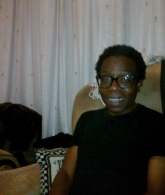 Biography
Biography
Kenneth Tafira holds a doctoral degree in Anthropology (attained in 2013) from University of Witwatersrand, supervisor Prof. David Coplan.
He is a Zimbabwean national, research interests include youth movements, migration, nationalism, social and critical theory, social research methods. Currently Kenneth is a post-doc at Archie Mafeje Research Institute, University of South Africa.
Monica Wilson Essay
Abstract: The outbreak of anti – immigrant violence in May 2008 has prompted a set of theoretical questions and a reappraisal of theoretical suppositions. While the attacks have in the mainstream pervasively presented as xenophobia, I argue in this paper that what is termed xenophobia is in fact racism – New Racism – practiced by people of the same population group, which has characterized post 1994 South African black social relations. These are implications of decolonization and difficulties of assimilating and integrating black African immigrants in the new South Africa. On the other hand there is increased culture contact and intermixing as a result of accelerated presence of other identities. There are of course conceptual and definitional limitations of the term xenophobia in describing the complex social realities happening in South African black communities. Rather I call for the deconstruction of the term xenophobia and that we begin to see it as culturally based racism. This kind of racism is heavily entrenched on cultural differences enunciated by dissimilarities in nationality, ethnicity, language, dress, customs, social and territorial origin, speech patterns and accents. These differences are deepened by social and economic inequalities and frustrations by the locals are expressed through economic grievances, which however mask the preceding cultural contempt and disdain.
2010 Phefumula Nyoni (WITS)
Biography
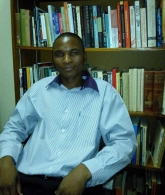 Phefumula is currently registered for a PhD Anthropology - commercialisation of clanship in an urban context at the University of Witwatersrand, supervisor: Dr Hylton White.
Phefumula is currently registered for a PhD Anthropology - commercialisation of clanship in an urban context at the University of Witwatersrand, supervisor: Dr Hylton White.
Phefumula is a developing researcher based in Gauteng with interests in Culture and community development; Policy, theory, gender, youth and entrepreneurship development in marginalised communities, migration, and health.
Winning the Monica Wilson prize
While I always have confidence in my work but the experience of winning the competition of the Monica Wilson magnitude took me by surprise. I however felt very much humbled by the announcement and it boosted my confidence in a very big way. I used part of the money to purchase a book and an external drive for my research. In terms of the publication I did forward the article and am grateful to the reviewers and the editors who worked tirelessly and patiently to foresee the publication of the work. It indeed presented me with a platform for mentorship. Finally I am very grateful to ASnA for such an inspiring and valuable award as it presents us with an opportunity to show case our writing skills.
Monica Wilson Essay
"New insights on trust, honor and networking in informal entrepreneurship: Zimbabwean Malayishas as informal remittance couriers."
Abstract: The paper focuses on the utility of the concepts of trust and honor in understanding relations among Zimbabwean malayishas. The concepts of trust and honor and how they produce and sustain a culture of networking and cooperation on the one hand and competition and conflict on the other are explored. The paper's arguments are largely informed by Bourdieu's ideas on social action with particular focus on his emphasis on economic capital as having primacy over other forms of capital. The study reveals a contradictory picture when it comes to malayisha-malayisha relations on the one hand and malayisha-client relations on the other in which case social capital has some relative primacy over economic capital. In this case, elements of trust and honor seem to be dominant in informing the networks and ties manifest in the remittance transportation trail.
